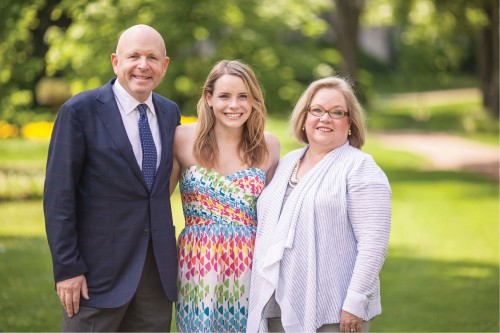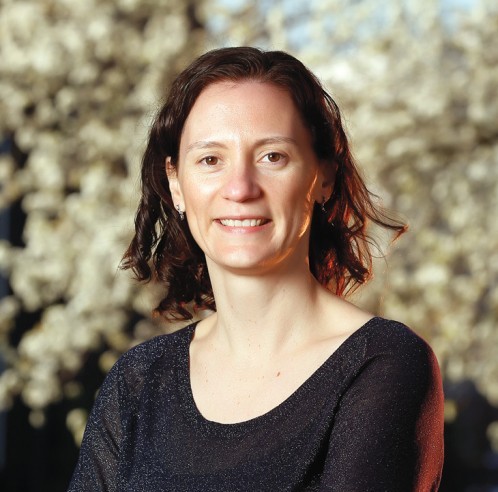
Family’s Gift Expands Summer Study-Abroad Opportunities
As Emily Schloss, BA’13, prepared to graduate earlier this year, her parents, Edwin and Maureen Schloss, began to think of ways to thank the Vanderbilt community for the opportunities afforded their daughter.
“In 2009, Ed and I brought to Vanderbilt a bright, motivated teenager with a variety of interests. Vanderbilt gave us back an accomplished young woman with a thorough understanding of complex public policy and economic issues, as well as a deep commitment to family, friends and her community,” says Maureen. “We believed a thank-you was in order.”
The Schlosses’ love of travel, coupled with Emily’s invaluable experiences while studying abroad in London, inspired them to show their appreciation by creating a fund to support summer and May semester study-abroad opportunities. The fund will help provide resources to students who otherwise may not be able to study internationally during the summer months.
“The gift from the Schloss family will have a huge positive impact,” says Thomas Bogenschild, director of international programs. “Many students look back and see study abroad as perhaps the most important experience they had during their college years. We are very, very grateful to the Schlosses for helping to make study-abroad opportunities available to even more Vanderbilt students.”
………………………………………………………………………………………………………………………………….

Cancer Research Bolstered by Young Ambassadors
At a time when research funding is tighter and more competitive than ever, a group of enthusiastic young philanthropists is making a difference at Vanderbilt–Ingram Cancer Center. Since 2010 the Young Ambassadors have awarded $230,000 through seven discovery grants to promising cancer researchers.
“Discovery grants fund new projects that can lead to huge breakthroughs,” says Todd Jackson, BA’96, EMBA’08, a cancer survivor who helped form the Young Ambassadors with his wife, Emily Blake. “We want to help researchers jump-start their projects so they are in a better position to apply for more funding.”
Melissa Skala, assistant professor of biomedical engineering, received a Young Ambassadors discovery grant this past year. “We’re studying how individuals respond to cancer drugs most effectively so we can offer improved therapies,” says Skala. “This grant helped us look at our research in a new way—a critical step in securing additional funding.” Skala and her team recently were awarded a $560,000 grant from the U.S. Department of Defense.
In total, researchers who have received support from the Young Ambassadors have generated an additional $2.4 million in funding to date from federal and other private sources.